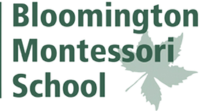Lower Elementary
First-Third Grade, Ages 6-9
Lower Elementary (First-Third Grades, ages 6-9)
Schedule: Lower elementary classrooms open at 8:15 and the arrival window is from 8:15-8:30. They begin with a community meeting, then have an uninterrupted work morning until mid-day recess and lunch. This work morning consists of lessons, book discussions, and independent and social learning activities. Children have daily jobs around campus to help care for their environment, such as helping with recycling or gardening. There is a second work period in the afternoons leading up to a dismissal window from 3:15-3:30pm. Elementary children can enroll in our Aftercare program if families need an extended day. Children can be picked up from Aftercare any time from 3:30-5:30 each weekday.
Plane of Development: Elementary students enter the plane of development focused on Reasoning and Abstraction. While Early Childhood relies on concrete representations of concepts, children at the elementary age can imagine quantities and learn about things in which they have no personal experience. Maria Montessori said this was the age at which we should “give children the Universe,” and big ideas are taught through imaginative lessons known as the “Great Stories”. This is also a time when concepts such as mathematic operations move from concrete lessons and exercise to abstract practice and children are able to imagine and manipulate quantities.
The elementary years are also an intensely social time. Lower Elementary students are experimenting with a variety of friendships and thrive when able to collaborate with peers. They are learning to live together in community as a classroom and recognize the interdependence this creates and how their actions impact others.
Curriculum: The elementary curriculum covers all the academic areas recognized by the department of education including:
- Reading
- Language Arts
- Arithmetic
- Geometry
- History
- Biology
- Geography
- Physics
- Fine Arts
- Cosmic Education (akin to “Social Studies” and providing an integrated base upon which to build history, biology, geography, and physics studies)
- Fine Arts
- Physical development
- Foreign Language (Spanish)
And also focuses on holistic learning areas such as:
- Interpersonal skills such as social responsibility, social justice, global citizenship, and environmental stewardship
- Intrapersonal skills such as autonomy, independence, confidence, competence, intrinsic motivation, growth mindset, and (secular) spiritual awareness.
Teachers act as guides to help children build positive associations with learning and challenge and become empowered, self-reliant, peaceful citizens.
